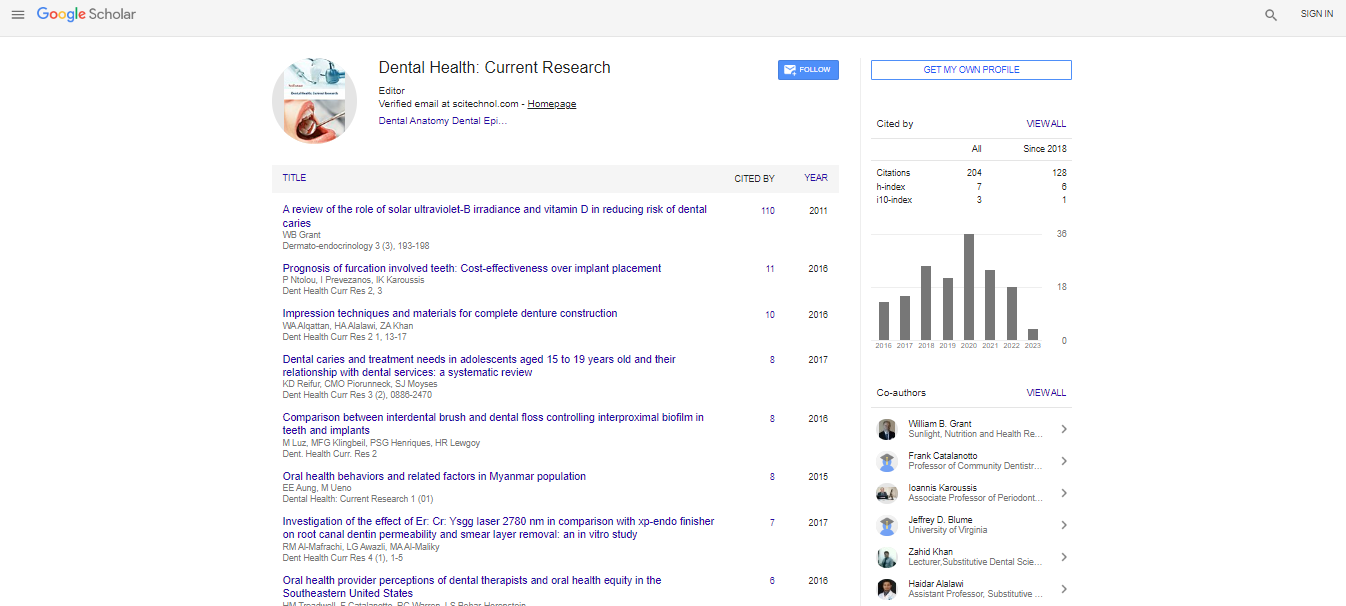Assessment of the impact of dental fluorosis on the oral health related quality of life (OHRQoL) in 10 - 14-year-old children
Srija Kodali
Mallareddy Dental College for Women, India
: Dent Health Curr Res
Abstract
Dental fluorosis is a condition of altered enamel formation caused by excessive intake of fluoride during tooth formation, with a wide range of severity. It is characterized by hypomineralization of the tooth structure. The increased prevalence of dental fluorosis worldwide has caused esthetic displeasure in children, leading to psychological and behavioural complications in the affected individuals. To assess the impact of Dental Fluorosis on the (OHRQoL) in 10-14-year-old children. The present study included a total of 545 children of age 10-14 years. All the children were screened to note DMFT, OHI-S, Deans Fluorosis indices followed by which children were asked to answer Child Perception questionnaire of their local language. Screening at schools ended with an oral health care talk. The data collected was compiled, tabulated and subjected to statistical analysis.Among the 545 subjects in the study 58.3% were males and 41.7% were females. The mean Deans Fluorosis Index score was 2.48±0.77. The means of domains oral symptoms, functional limitations, emotional wellbeing and social wellbeing were 2.41±2.56, 2.14±2.70, 3.73±4.58 and 4.38±5.55 respectively. Multiple regression analysis of the data showed that dental fluorosis had a significant impact on OHRQoL in children. Dental Fluorosis has a negative impact on the OHRQoL children. Children with Dental Fluorosis have been avoiding smiling and laughing because of their aesthetic concerns. Dental Fluorosis mainly affects the social well-being of children. Comparison of OHRQL scores between various Deanâ??s fluorosis index scores shows that OHRQoL was mostly affected in children with severe fluorosis followed by moderate fluorosis.
Biography
Dr. Srija Kodali is a doctor at Mallareddy Dental College for Women,India
 Spanish
Spanish  Chinese
Chinese  Russian
Russian  German
German  French
French  Japanese
Japanese  Portuguese
Portuguese  Hindi
Hindi 